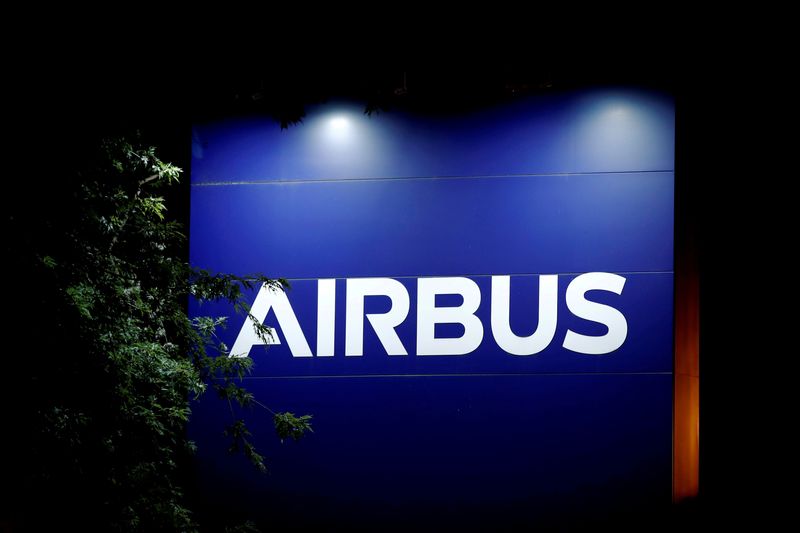By Aradhana Aravindan and Eric M. Johnson
SINGAPORE/SEATTLE (Reuters) - Supply chain shortages and wage inflation are at the top of a list of concerns for aerospace companies attending a depleted Singapore Airshow amid tight health controls this week.
Across aerospace, the suppliers that feed Boeing (NYSE:BA) and Airbus factories are facing an acute shortage of skilled workers and weakened balance sheets after back-to-back crises triggered by a 737 MAX safety grounding and the COVID-19 air travel slump.
A shortage of vital materials, from titanium to microchips, is worrying procurement executives, coming on top of existing fears over available stocks of steel and aluminium.
Those factors - compounding a decade of pressure from Boeing and Airbus to cut prices - are fuelling doubts about the supply chain's ability to meet aggressive narrowbody production ramp-up plans this year and beyond, particularly at Europe's Airbus.
"Wherever I look in the supply chain, I see problems," Gary Lowe, Chief Executive of Thyssenkrupp (DE:TKAG) Aerospace North America, told a U.S. supplier conference on the eve of the air show.
Referring to increases in production planned by Airbus and Boeing, he said, "I think it's going to be a lot more lumpy and problematic than people realise."
A labour shortage is likely to fuel inflation as firms try and lure back workers who left the industry during the pandemic, while staffing up to meet demand.
The aviation recovery has been swifter than expected, particularly in the narrowbody market, Kailash Krishnaswamy, senior vice president of aftermarket services at Spirit AeroSystems (NYSE:SPR), said on the sidelines of the Singapore Airshow on Tuesday.
"When you have cut down labour by 20% to 50%, ramping up that steep... it's just very challenging getting people back. And when you don't have people back, you don't have parts," he added.
And many analysts say the maximum point of vulnerability is when suppliers have to invest in inventory or new equipment to respond to demand coming out of the crisis, rather than during the low point of demand when furlough schemes softened the pain.
"Some of these supply chain guys have been stretched in terms of their balance sheets, cash flows, significant investment into plant and material prior to pandemic. So I am worried about their financial health," Domhnal Slattery, chief executive of aircraft lessor Avolon said in Singapore.
Lowe urged suppliers across the industry to be transparent about what they need and avoid stockpiling materials.
After months in which the aerospace industry broadly shrugged off the impact of the semiconductor shortage, aviation is beginning to feel pressure.
Planemakers can still find supplies of the high-value, low-volume chips used for flight controls and avionics - whose designs are relatively old compared with the lightning pace of change in the consumer products world.
But supplies of chips for more common uses such as aircraft seat electronics are beginning to dry up, a senior procurement source said.
Eric Bernardini, global co-head of aerospace, defence and aviation at U.S. consultants AlixPartners, said the problem is more visible in the supply base of Airbus than Boeing.
That is because Airbus is pushing ahead faster than its rival despite reservations from its engine suppliers, while delays in the 787 Dreamliner and a gradual recovery in the 737 MAX have left parts of Boeing's supply base with excess inventory.
On Monday, executives from both companies said they were aware of supply chain risks and were factoring them into their planning.
To offset cost pressure, suppliers in the United States are moving some production from states with high labour costs such as California, Bernardini said.

He said the Omicron coronavirus variant has also taken a toll on assembly lines as COVID-19 infections left suppliers short-staffed. In some cases, the variant had put 25% of the workforce out of circulation.
"This is very disruptive," Bernardini said. "The productivity has decreased."